第54章
THE FOREGOING evidence may satisfy us that in many lands and many races magic has claimed to control the great forces of nature for the good of man.
If that has been so, the practitioners of the art must necessarily be personages of importance and influence in any society which puts faith in their extravagant pretensions, and it would be no matter for surprise if, by virtue of the reputation which they enjoy and of the awe which they inspire, some of them should attain to the highest position of authority over their credulous fellows. In point of fact magicians appear to have often developed into chiefs and kings.
Let us begin by looking at the lowest race of men as to whom we possess comparatively full and accurate information, the aborigines of Australia.
These savages are ruled neither by chiefs nor kings. So far as their tribes can be said to have a political constitution, it is a democracy or rather an oligarchy of old and influential men, who meet in council and decide on all measures of importance to the practical exclusion of the younger men. Their deliberative assembly answers to the senate of later times: if we had to coin a word for such a government of elders we might call it a gerontocracy. The elders who in aboriginal Australia thus meet and direct the affairs of their tribe appear to be for the most part the headmen of their respective totem clans. Now in Central Australia, where the desert nature of the country and the almost complete isolation from foreign influences have retarded progress and preserved the natives on the whole in their most primitive state, the headmen of the various totem clans are charged with the important task of performing magical ceremonies for the multiplication of the totems, and as the great majority of the totems are edible animals or plants, it follows that these men are commonly expected to provide the people with food by means of magic. Others have to make the rain to fall or to render other services to the community. In short, among the tribes of Central Australia the headmen are public magicians. Further, their most important function is to take charge of the sacred storehouse, usually a cleft in the rocks or a hole in the ground, where are kept the holy stones and sticks (churinga) with which the souls of all the people, both living and dead, are apparently supposed to be in a manner bound up. Thus while the headmen have certainly to perform what we should call civil duties, such as to inflict punishment for breaches of tribal custom, their principal functions are sacred or magical.
When we pass from Australia to New Guinea we find that, though the natives stand at a far higher level of culture than the Australian aborigines, the constitution of society among them is still essentially democratic or oligarchic, and chieftainship exists only in embryo. Thus Sir William MacGregor tells us that in British New Guinea no one has ever arisen wise enough, bold enough, and strong enough to become the despot even of a single district. The nearest approach to this has been the very distant one of some person becoming a renowned wizard; but that has only resulted in levying a certain amount of blackmail.
According to a native account, the origin of the power of Melanesian chiefs lies entirely in the belief that they have communication with mighty ghosts, and wield that supernatural power whereby they can bring the influence of the ghosts to bear. If a chief imposed a fine, it was paid because the people universally dreaded his ghostly power, and firmly believed that he could inflict calamity and sickness upon such as resisted him. As soon as any considerable number of his people began to disbelieve in his influence with the ghosts, his power to levy fines was shaken. Again, Dr. George Brown tells us that in New Britain a ruling chief was always supposed to exercise priestly functions, that is, he professed to be in constant communication with the tebarans (spirits), and through their influence he was enabled to bring rain or sunshine, fair winds or foul ones, sickness or health, success or disaster in war, and generally to procure any blessing or curse for which the applicant was willing to pay a sufficient price.
Still rising in the scale of culture we come to Africa, where both the chieftainship and the kingship are fully developed; and here the evidence for the evolution of the chief out of the magician, and especially out of the rain-maker, is comparatively plentiful. Thus among the Wambugwe, a Bantu people of East Africa, the original form of government was a family republic, but the enormous power of the sorcerers, transmitted by inheritance, soon raised them to the rank of petty lords or chiefs. Of the three chiefs living in the country in 1894 two were much dreaded as magicians, and the wealth of cattle they possessed came to them almost wholly in the shape of presents bestowed for their services in that capacity. Their principal art was that of rain-making. The chiefs of the Wataturu, another people of East Africa, are said to be nothing but sorcerers destitute of any direct political influence.
Again, among the Wagogo of East Africa the main power of the chiefs, we are told, is derived from their art of rain-making. If a chief cannot make rain himself, he must procure it from some one who can.